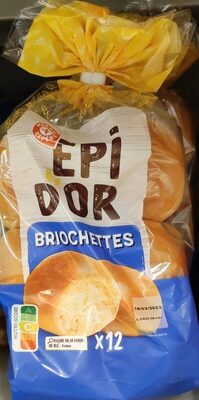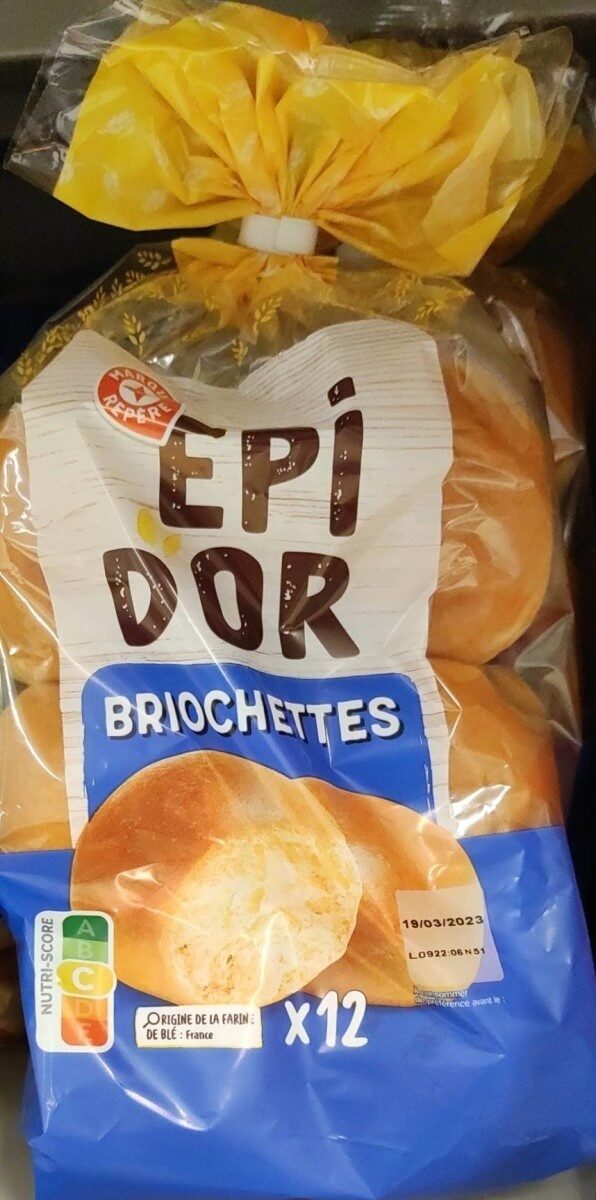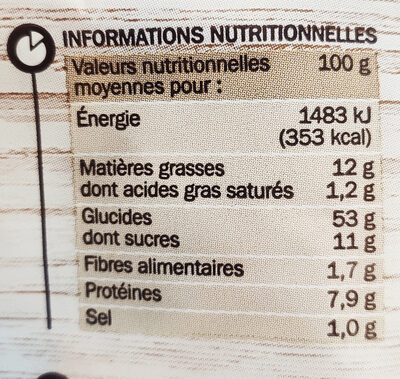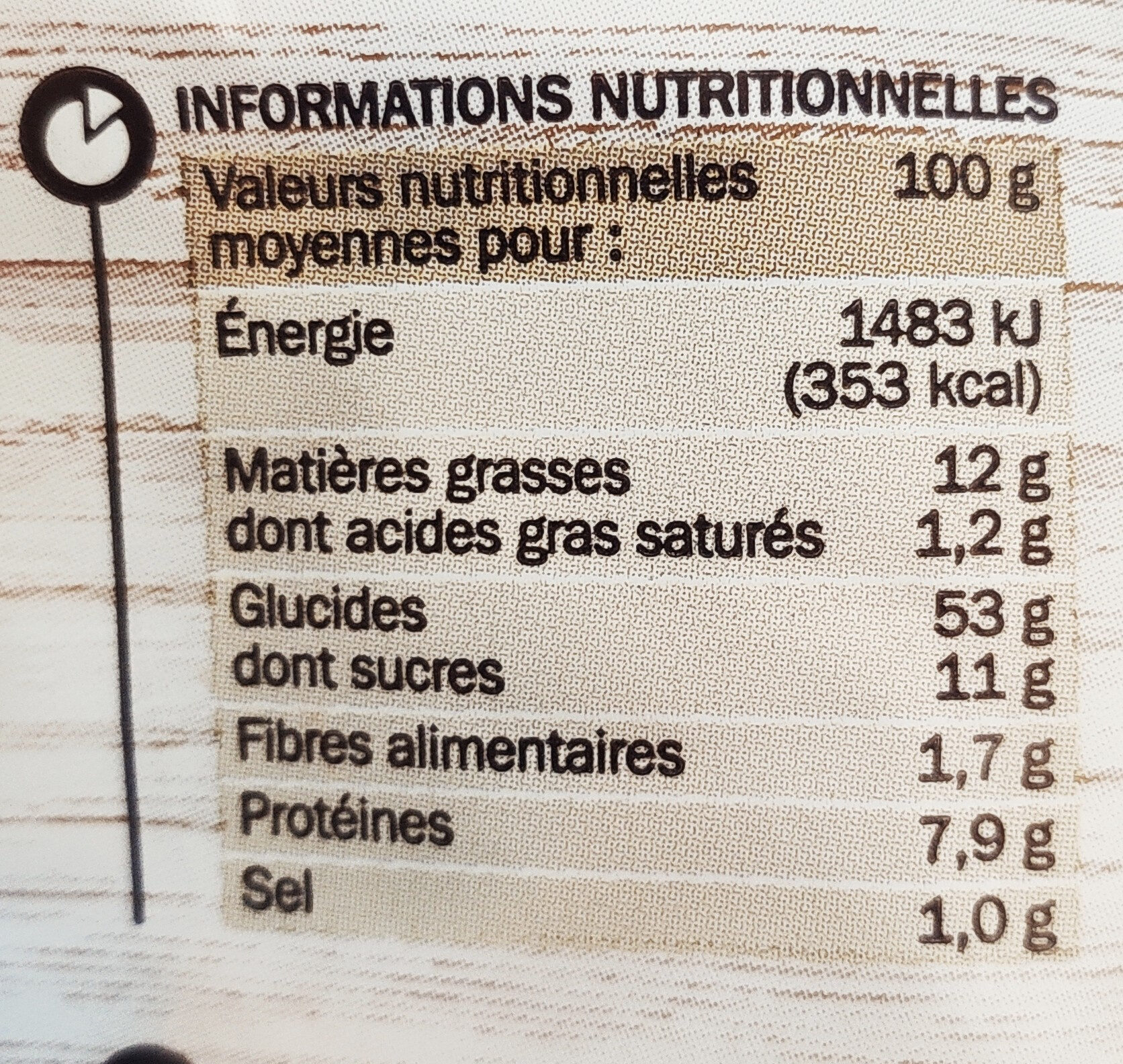12 Briochettes rondes - Épi d'Or - 480 g
This product page is not complete. You can help to complete it by editing it and adding more data from the photos we have, or by taking more photos using the app for Android or iPhone/iPad. Thank you!
×
Some of the data for this product has been provided directly by the manufacturer Scamark.
Barcode: 3564700282427 (EAN / EAN-13)
Common name: Briochettes
Quantity: 480 g
Packaging: Plastic
Brands: Épi d'Or, Marque Repère
Categories: Snacks, Sweet snacks, Sweet pastries and pies, Viennoiseries, Brioches, Small brioches
Labels, certifications, awards:
Green Dot, Nutriscore, Nutriscore Grade C
Stores: Leclerc
Countries where sold: France
Matching with your preferences
Environment
Carbon footprint
Packaging
Transportation
Report a problem
Data sources
Product added on by sto
Last edit of product page on by misterwhite.
Product page also edited by alexfauquette, beniben, foodvisor, inf, kiliweb, openfoodfacts-contributors, org-scamark, packbot, roboto-app, scamark, tacite-mass-editor, yuka.SG9reUVKOG5wdkEzbXNBNHBpM2s2TkZYM0xxTmYwNjdjL2NESVE9PQ, yuka.XesbHObTINIrRveL3aJsjTKXScXODcFkAnRTog, yuka.ZExrYk1KVU5sdDBveXNRQW9pUFB5OWRheXB5NFkzS1pCZWdUSVE9PQ, yuka.Zm9NU0xwd2RtOU5TZ3YwWS9RdlR5dnhIeU1HZ1cwV0ZBZk1VSWc9PQ, yuka.sY2b0xO6T85zoF3NwEKvll5NQ9H7jgjnHBLQun2xw_eIC5i4e4x527DKNag, yuka.sY2b0xO6T85zoF3NwEKvlmlHDtz-8xnjLRPWnRaAysakCp7DYIBzwZf2bas.










